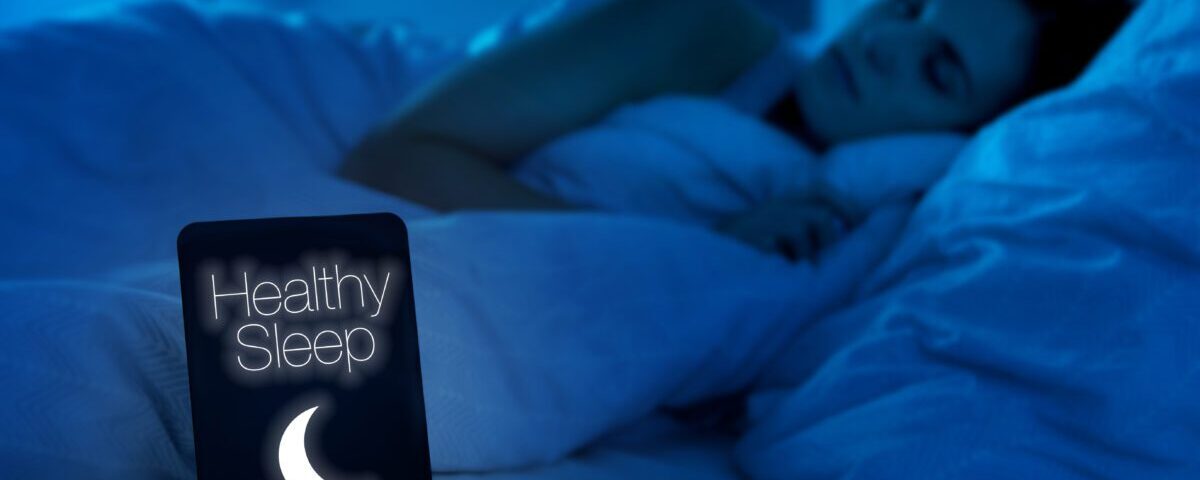Healthy Sleep Habits

Do you consider yourself to have healthy sleep habits? It may come as a surprise that your sleep is greatly affected by your behaviors during the entire day, not just by pre-bedtime routines. Your activities during the day, including the foods and beverages you consume, how much screen time you get, and even the medications you take, all have a major impact on your quality of sleep. They can either promote healthy sleep or contribute to sleeplessness and restless sleep. Even a few slight adjustments can, in some cases, mean the difference between sound sleep and a night of clockwatching and tossing and turning.
The term “sleep hygiene” refers to a series of healthy sleep habits and pre-bedtime routines that can improve your ability to fall asleep and stay asleep, thereby improving your overall sleep health. When people struggle with insomnia, sleep hygiene is an important part of cognitive behavioral therapy (CBT), which is the most effective long-term treatment for people with chronic insomnia. CBT for insomnia can help you address the thoughts and behaviors that prevent you from sleeping well or getting to sleep at all. It also includes techniques for stress reduction, relaxation, and sleep schedule management.
If you have difficulty sleeping or want to improve your sleep, try following these healthy sleep habits. Don’t hesitate to talk to your medical provider if your sleep problems persist.

Quick Sleep Tips:
- Keep a consistent sleep schedule. Go to bed and get up at the same time every day, even on weekends or during vacations. This may sound like an awful idea, but it will improve your circadian rhythm and keep your brain and body functioning optimally, which will help you to feel more rested and energized every day of the week.
- Set a bedtime that is early enough for you to get at least 7-8 hours of sleep. It is imperative that you get a minimum of 7 hours of sleep as an adult, while children and teens require more. Consistently getting less than 7 hours of sleep per night will increase your risk of heart disease, stroke, obesity, diabetes, and chronic fatigue.
- Monitor how long it takes you to get ready for bed and start your bedtime routine at an appropriate time to allow for 7-8 hours of sleep.
- Try not to go to bed unless you are tired. Your mind should associate your bed with sleeping. If you spend time in bed not sleeping, i.e., watching TV and/or eating snacks, then your brain will not make the appropriate association and you will have a harder time getting to sleep.
- If you go to bed and do not get to sleep after 20 minutes, get out of bed and do something that will help you get tired, such as reading a book by candlelight (remember: non-fiction in the morning and fiction in the evening!), or doing some light stretching. Don’t expose yourself to blue light from screens – keep your phone, tablet, computer, etc. off.
- Don’t eat too close to bedtime, but drinking a nighttime tea such as chamomile or passionflower can help relax you and make it easier to fall asleep. Try to make your last meal at least 3 hours before bedtime. If you find that you’re hungry before bed, try a light snack such as an apple with peanut butter.
- Establish a relaxing bedtime routine. Taking a hot shower can be especially helpful in putting you to sleep. When you raise your core temperature with a hot shower, your core temperature then drops quickly after you’re done, which simulates the body’s natural temperature change when falling asleep (your core temperature falls by 4° as you drift off to sleep!).
- Use your bed only for sleep and intimacy.
- Make your bedroom and quiet and relaxing space. Try to use lamplight rather than overhead lights (candlelight is even better before bed) and do your best to keep the temperature around 65°-67°.
- Limit light exposure, especially the blue light from electronics. This is known as artificial light, and your brain can’t tell the difference between that artificial light and sunlight. This means that, as you continue exposing yourself to that artificial light, your brain does not start producing the melatonin needed to fall asleep because it thinks it’s still daytime, and we are diurnal creatures by nature. We need darkness to produce melatonin and fall asleep.
- Turn off all electronic devices at least 30 minutes before bedtime.
- Exercise regularly and maintain a healthy diet. It is recommended to get at least 2 ½ hours of moderate cardiovascular activity, such as brisk walking or jogging, per week. Your diet should be macrobiotically balanced with limited sugar intake.
- Avoid consuming caffeine after 2:00 pm.
- Avoid consuming alcohol before bedtime. Alcohol can put you to sleep faster, but it does not provide restful sleep. Instead, it leads to fragmented sleep and dehydration.
- Reduce your fluid intake before bed to keep yourself asleep longer.
These are just a few things you can do to improve your sleep, which in turn will improve your overall health and quality of life. Many people experience some symptoms of anxiety, stress, depression, and illness (such as contracting colds more often than others) as a result of poor sleep. The first step to better health is to get better sleep. If you find that you are doing everything possible to achieve better sleep but still experiencing insomnia or restlessness, you should talk to your healthcare provider or make sure you are sleeping on a mattress that is right for your preferred sleeping position.
Looking for a new mattress because you are not sleeping at night but don’t know where to start? Call our sleep experts or browse our entire selection of mattresses by using our customized selector tool to narrow down your search. . At Sleep City we don’t just sell mattresses…we promote sleep and how it impacts your health.
Improving America’s Sleep ~ Sleep City!




